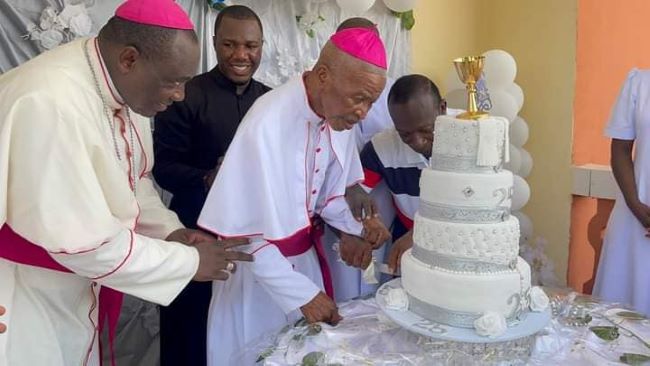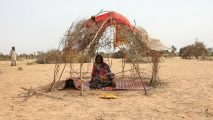Categories
Archives
- April 2024
- March 2024
- February 2024
- January 2024
- December 2023
- November 2023
- October 2023
- September 2023
- August 2023
- July 2023
- June 2023
- May 2023
- April 2023
- March 2023
- February 2023
- January 2023
- December 2022
- November 2022
- October 2022
- September 2022
- August 2022
- July 2022
- June 2022
- May 2022
- April 2022
- March 2022
- February 2022
- January 2022
- December 2021
- November 2021
- October 2021
- September 2021
- August 2021
- July 2021
- June 2021
- May 2021
- April 2021
- March 2021
- February 2021
- January 2021
- December 2020
- November 2020
- October 2020
- September 2020
- August 2020
- July 2020
- June 2020
- May 2020
- April 2020
- March 2020
- February 2020
- January 2020
- December 2019
- November 2019
- October 2019
- September 2019
- August 2019
- July 2019
- June 2019
- May 2019
- April 2019
- March 2019
- February 2019
- January 2019
- December 2018
- November 2018
- October 2018
- September 2018
- August 2018
- July 2018
- June 2018
- May 2018
- April 2018
- March 2018
- February 2018
- January 2018
- December 2017
- November 2017
- October 2017
- September 2017
- August 2017
- July 2017
- June 2017
- May 2017
- April 2017
- March 2017
- February 2017
- January 2017
- December 2016
- November 2016
- October 2016
- September 2016
- August 2016
- July 2016
- June 2016
Featured
 Bishop Francis T. Lysinge @ 25!
Bishop Francis T. Lysinge @ 25!  Understanding the Biya Francophone regime’s support for the Israeli genocide in Gaza
Understanding the Biya Francophone regime’s support for the Israeli genocide in Gaza  Poverty under Biya: Cameroonians embrace Chinese language for brighter futures
Poverty under Biya: Cameroonians embrace Chinese language for brighter futures  Cameroon is broken: Who can fix it?
Cameroon is broken: Who can fix it?  Ethiopia: U.S Senator Cardin Statement on the Killing of Bate Urgessa
Ethiopia: U.S Senator Cardin Statement on the Killing of Bate Urgessa
Most Commented Posts
 4 Anglophone detainees killed in Yaounde
4 Anglophone detainees killed in Yaounde
19 comments Chantal Biya says she will return to Cameroon if General Ivo Yenwo, Martin Belinga Eboutou and Ferdinand Ngoh Ngoh are sacked
Chantal Biya says she will return to Cameroon if General Ivo Yenwo, Martin Belinga Eboutou and Ferdinand Ngoh Ngoh are sacked
13 comments Anglophone Nationalism: Barrister Eyambe says “hidden plans are at work”
Anglophone Nationalism: Barrister Eyambe says “hidden plans are at work”
12 comments The Anglophone Problem – When Facts don’t Lie
The Anglophone Problem – When Facts don’t Lie
12 comments Largest wave of arrest by BIR in Bamenda
Largest wave of arrest by BIR in Bamenda
10 comments
Latest Tweets
Featured
-

Bishop Francis T. Lysinge @ 25!
-

10 Million Cameroonians lived on less than $1.80 per day
-

Football: Xavi to remain as Barcelona coach
-

Biya regime delays bond sale amid regional market strain
-

Historic agreement between Nigeria and Cameroon to tackle wildlife crime
-

Southern Cameroons refugees in Nigeria receive farm seedlings
-

Douala: Investment Forum wraps up with honors for investment champions
© Cameroon Concord News 2024
7, March 2018
Clueless Biya cabinet unlikely to resolve the crisis in Southern Cameroons 0
This week’s Cabinet reshuffle in Cameroon appears unlikely to herald change in the government’s approach to the crisis in the anglophone regions. The crisis began nearly a year-and-a-half ago and has grown more violent. Stabilizing the anglophone regions is seen as a priority ahead of nationwide elections later this year.
There are two notable firsts in the new Cabinet of President Paul Biya.
Nalova Lyonga from Cameroon’s English-speaking southwest region becomes the minister of secondary education. Paul Atanga Nji from the English-speaking northwest region assumes the job of minister of territorial administration.
Neither of those posts has ever been held by a member of the country’s anglophone minority.
The government remains under the charge of Prime Minister Philomen Yang, who also hails from the English-speaking northwest.
Some see the new appointments as an effort to curb tensions in the English-speaking regions. However, teachers involved in the 2016 strike that kicked off the crisis say they are unconvinced.
“The anglophone populace say they are asking for a system of governance that will allow them run their own things apart, separate from what they see, from the general super-structure of anglophones and francophones, and we have talked a lot about dialogue,” said Valentine Tame, a leader of the Teachers Association of Cameroon. “We have talked a lot about forgiving people, talk together and see how things can go ahead.”
Cameroon has two official languages — English and French. Strikers say the anglophone minority has been marginalized. Demands range from reforms to school curriculum to a return to federalism.
Over the past year, amid deadly unrest and waves of arrests, armed separatist groups have emerged demanding all-out independence for the two English-speaking regions. The government says at least 30 and police have been killed.
President Biya has announced some reforms — for example, official documents are now more available in both languages. However, the president has ruled out any dialogue on the form of the state.
Local analysts told VOA they do not expect the new Cabinet to mark a change in the government’s approach.
Nji, the new minister of territorial administration, has been a close aide to Biya for some time. Soon after the strike began in 2016 in his home region, the northwest, Njj told state TV that there was no such thing as problems specific to anglophones in Cameroon, a position he tells VOA he maintains.
“President Paul Biya, as I have always said it, whenever he has to take any important decision, anglophones have always been in the center of those decisions,” he said. “President Paul Biya has proven beyond all reasonable doubts that he has total confidence in English-speaking Cameroonians.”
The Cabinet appointments this month followed reports of fresh arrests in the English-speaking regions, which remain under a curfew.
Culled from the VOA